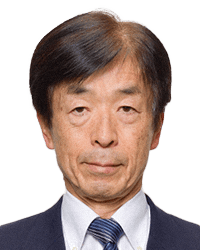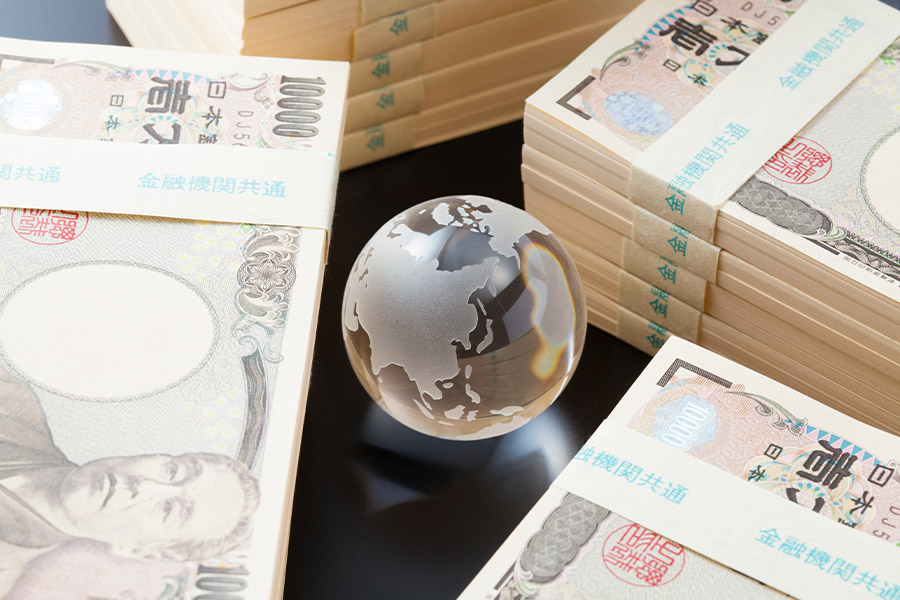This legislation is aimed at protecting national interests while safeguarding against the nefarious use of Japanese technologies by foreign actors
The movement in the world economy after the First World War was aimed at preventing economic-bloc formation and promoting free trade with the goal of achieving world peace and global economic prosperity. Currently, however, the international trade environment appears to be increasingly unstable, a drastic change from the days when countries established international frameworks to promote free trade. For example, the change in US trade policy by the Donald Trump administration has had a significant impact on the international economy.
Other countries are also tightening their regulations on international trade, and Japan is no exception. Keeping up to date with regulations in each country and correctly understanding the intentions of their administrative authorities is more critical than ever when engaging in international transactions.
In Japan, the Act on the Promotion of Security Assurance through Integrated Economic Measures (commonly called the Economic Security Promotion Act) was enacted on 11 May 2022. In addition, starting with the 2019 amendment, laws and regulations related to the Foreign Exchange and Foreign Trade Act have been frequently revised, resulting in significant changes, especially in foreign direct investment in Japan.
The following provides an overview of these key developments. It should be noted that the contents of these laws related to economic security are not always clear, and that the administrative authorities have a high degree of discretion in their enforcement.
Economic Security Promotion Act
 Takashi Suzuki
Takashi Suzuki
Counsel
City-Yuwa Partners
Tokyo
Tel: +81 3 6212 5688
Email: takashi.suzuki@city-yuwa.com
The act establishes four systems to prevent actions that may harm national and public security in economic activities, in light of increasingly complex international situations and changes in socioeconomic structures:
Ensuring a stable supply of critical materials;
Ensuring stable provision of essential infrastructure services;
Enhancing development of specified critical technologies; and
Non-disclosure of selected patent applications.
Supply of critical materials
This is a measure to designate specified critical materials, and it provides support measures (subsidies, loans, etc.) to businesses to strengthen the supply chain related to such materials.
In December 2022, 11 types of specified critical materials – including machine tools and industrial robots, semiconductors (semiconductor devices and integrated circuits), storage batteries, – were designated.
Essential infrastructure services
The act imposes prior screening on major providers designated by competent ministers for essential infrastructure services, such as electricity, gas, water and finance, when they install critical facilities or outsource their maintenance and management. The purpose is to prevent these essential infrastructure elements from being used by external actors in sabotage attacks.
Suppliers outside of Japan are also required to provide information on suppliers, board members, persons directly holding 5% or more of voting rights, major customers, implementation status of risk-management measures, countries and regions where equipment is manufactured, and types, names and functions of equipment if the requirements are applicable.
In addition, information not only on primary suppliers but also on secondary and subsequent suppliers will be required. Companies should be aware of this requirement and ensure that appropriate contractual provisions are in place in advance to address these obligations.
Specified critical technologies
 Yuko Toyoda
Yuko Toyoda
Partner
City-Yuwa Partners
Tokyo
Tel: +81 3 6212 5678
Email: yuko.toyoda@city-yuwa.com
The act provides for support by the government for advanced technologies that are important for national security.
Non-disclosure of selected patent applications. This system prevents the disclosure of sensitive technology and the leaking of information that poses a significant risk to national and public security.
Patent applications that have been designated under this system are subject to certain compensations. However, they also face restrictions such as requiring approval for the working of the invention and a ban on filing applications abroad.
These measures represent newly introduced systems in Japan. The act provides only a framework, and the substantive details are defined by subordinate laws and regulations after the government sets the basic policies for each system post-legislation.
Businesses are required to submit plans or obtain certification from the relevant authorities, making regulatory compliance and administrative procedures crucial. As administrative authorities have discretionary authority, effective communication with them is important. Seeking expert advice when it is necessary can be highly beneficial.
Foreign Exchange & Foreign Trade Act
Since the 2019 amendment, this act has been strengthened through frequent amendments to the act itself and its subordinate regulations. In parti-cular, the designated industries requiring prior notification with respect to foreign direct investment have been frequently expanded.
The major additions include:
2019: Cybersecurity-related industries;
2020: Manufacturing industries related to pharmaceuticals for infectious diseases; and
2023: Industries related to supply-chain integrity.
In addition, certain Russia-related restrictions were established in response to Russia’s invasion of Ukraine.
The designated cybersecurity-related industries added in 2019 include software industry and information processing services and, practically speaking, it is necessary to carefully check the applicability of this designation.
For example, even if a Japanese subsidiary merely sells software developed by a foreign parent company, if the subsidiary provides support to Japanese customers for software bugs and a bug is then fixed by the subsidiary, it may fall under this designated industry category.
In addition, the 2023 addition for supply-chain preservation is intended to be consistent with the measures for supply-chain resilience under the Economic Security Promotion Act, as described above. As a result, industries related to specified critical materials were largely included in the designated-industry list.
Procedure. Under the Foreign Exchange and Foreign Trade Act, a prior notification generally must be submitted to the Ministry of Finance through the Bank of Japan when making a foreign direct investment in a designated industry (e.g. the establishment of a Japanese subsidiary by a foreign company).
Generally, a company that would like to invest will receive a questionnaire from the competent authorities. It should be noted that in some cases, multiple exchanges of questions and answers may be required, which can take several weeks to several months. In this exchange, it is necessary for companies to accurately grasp the concerns of the authorities and appropriately address what information is requested.
Furthermore, in some cases, applicants may be required to submit written pledges to comply with certain matters that are not listed in the laws, regulations or guidelines. This could include, for example, that the server used for the business should be sited in Japan for purposes of protecting personal data.
The content of the written pledge is determined on a case-by-case basis and takes into consideration circumstances such as the nature of the business, the character of the parent company, and the nature of information handled.
The Ohkawara Kakohki case
Finally, although briefly due to space constraints, we mention a wrongful criminal accusation of violation of the Foreign Exchange and Foreign Trade Act.
In 2020, the representative director and other executives of Ohkawara Kakohki were arrested and detained for 11 months on charges of violating the Foreign Exchange and Foreign Trade Act. The charges were based on the company exporting machinery without the necessary official permission.
The requirements for the permission were added by the amendment of the ministerial ordinance in 2013 from a security perspective to control machinery that could be converted to weapons. Ultimately, the machines exported by Ohkawara Kakohki did not meet these criteria, and the prosecution was withdrawn.
Some of the regulations require careful judgment, including decisions on detailed technical requirements. It will be necessary for companies not only to determine whether their products or machinery fall under the requirement of the laws and regulation, but also to reconcile these views with the authorities.

CITY-YUWA PARTNERS
Marunouchi Mitsui Bldg, 2-2-2 Marunouchi,
Chiyoda-ku, Tokyo 100-0005, Japan
Tel: +81 3 6212 5500
www.city-yuwa.com/global/en/


AloJapan.com